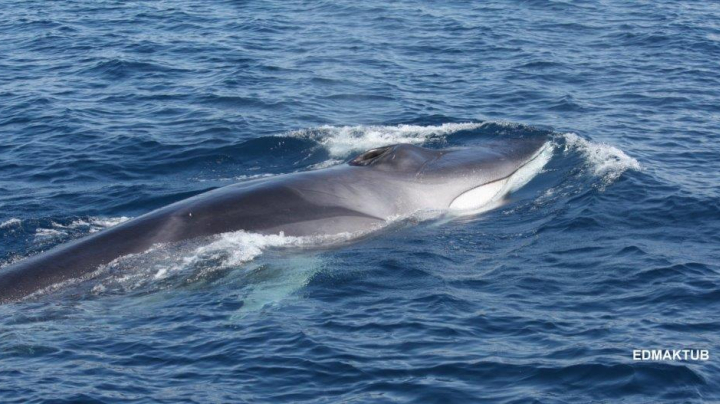
Barcelona Zoo and EDMAKTUB, an association dedicated to studying and disseminating information on the marine environment, have been carrying out various collaborations since 2010 to study the cetaceans of the Catalano-Balearic coastal area. These studies have borne witness over the last few years to a seasonal presence of the fin whale (Balaenoptera physalus) in Catalonia’s coastal waters, much more intense than previously supposed, with the identification of frequent feedings, thereby challenging the view of this area as a migratory corridor. The maritime cetacean-study campaigns that EDMAKTUB has been carrying out in collaboration with Barcelona Zoo every spring since 2016 have intensified their data-gathering work on fin whales, which has allowed the establishment of a project specifically focused on this species: the FIN WHALE PROJECT.
Fin whales are a cetacean species classed as “endangered” under the IUCN Red List of Threatened Species. While records of their presence in the Mediterranean go back to ancient times, there are still many gaps in our knowledge concerning aspects of their bio-ecology in this area of distribution and, above all, in the western Mediterranean, to be more precise. Given that the fin whale is an endangered, slow-breeding species for which there are no recent estimates of its numbers in the Mediterranean as a whole, and which is exposed to numerous threats of various kinds, our need to know basic aspects of its ecology that will provide information for its conservation is all the more urgent. This study will enable us to obtain data by answering current scientific questions, of interest to the bodies tasked with management, in particular on the use of habitat and its importance, the fin whale's movements and the potential space-time coincidence of the Mediterranean’s subpopulations, the genetic characterisation of the western Mediterranean’s subpopulation and the best knowledge of their state of health.
Transects are being carried out under the FIN WHALE PROJECT on board a fully equipped catamaran to record the cetacean presence. Data on presence, behaviour, photo-identification, environmental variables, sound and visual recordings, and biological samples taken (zooplankton and excrement) are being obtained, as well as plastics for subsequent identification. Besides the scientific work, a relationship with fishing guilds has been built enabling information to be gathered on the presence of cetaceans practically in real time, along the Catalan and Valencia coast. This a project carried out in collaboration with the EDMAKTUB Association, for monitoring populations of cetaceans in the Catalan sea and in particular for conducting studies on the bio-ecology of the fin whale (Balaenoptera physalus) in the Levantino-Balearic maritime boundary.




